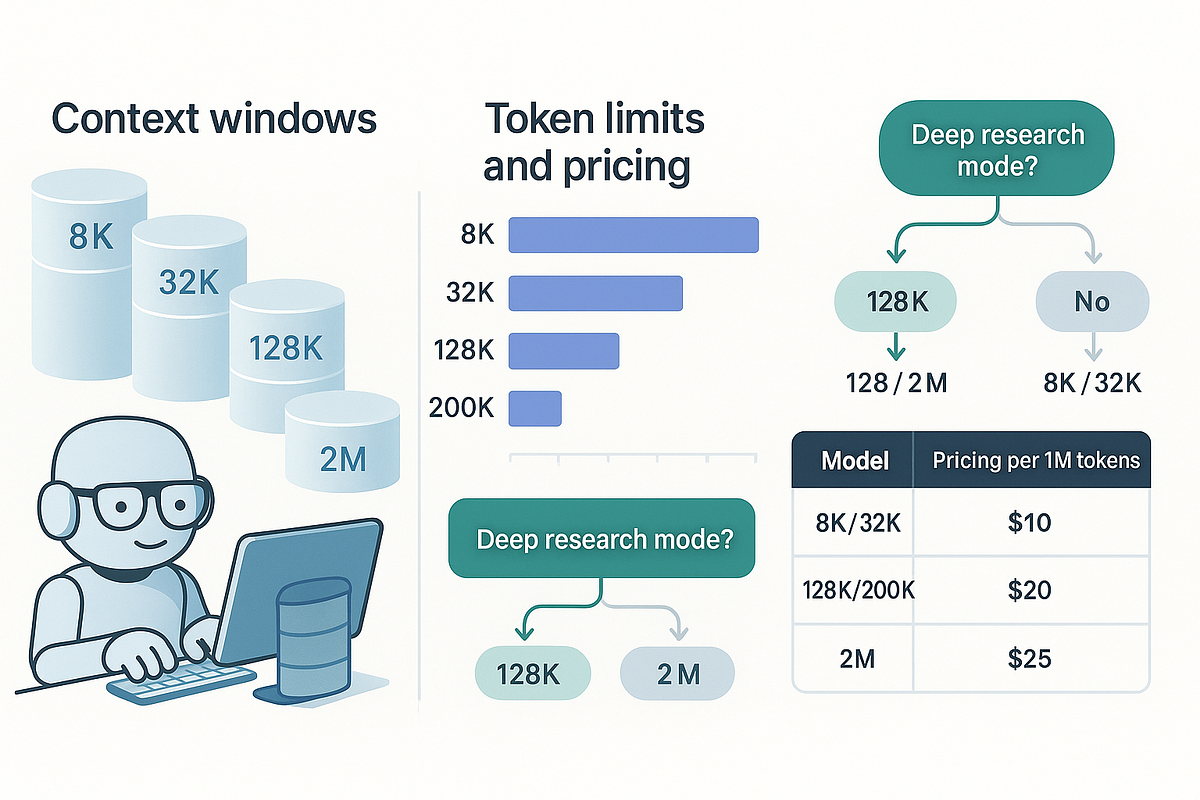TL;DR: A new UC Davis security study exposes alarming privacy violations in popular AI browser extensions. While tools like Sider and Monica collect sensitive data despite privacy promises, HARPA AI and AI Blaze maintain better security standards for enterprise use. This analysis reveals which extensions actually deliver ROI without compromising your business data.
Hi, I’m Dr. Hernani Costa, AI CxO Founder at First AI Movers. With over 25 years in tech and AI, where I helped SMEs and Enterprise leaders navigate AI adoption safely, I’ve watched the browser extension market explode with tools that promise productivity but often compromise security. When the UC Davis study dropped in August 2025, it confirmed what I’ve been warning clients about: most popular AI extensions are digital trojan horses collecting your most sensitive business data.
This isn’t another feature comparison. It’s an evidence-based security audit that could save your business from regulatory violations, data breaches, and the nightmare of explaining to your board why customer PII ended up in third-party analytics platforms.
In this article, we’ll cover:
Which AI browser extensions actually pass independent security audits
How the UC Davis study exposed widespread privacy violations in popular tools
Real-world ROI calculations for enterprise-grade extensions
A practical security framework for evaluating AI browser tools
My take on building AI productivity without sacrificing data protection
By the end, you’ll have a clear action plan to audit your current extensions, implement secure alternatives, and establish approval processes that protect your business while unlocking genuine productivity gains. No hype, just practical guidance based on real security research and practical experience on AI implementation.
Which AI browser extensions are actually safe for business use?
The short answer is: very few.
A groundbreaking UC Davis study published in August 2025 tested nine popular AI browser extensions and found widespread privacy violations. Researchers discovered that extensions like Monica and Sider were collecting “the highest level of profiling” data, including email content, patient histories, and partial financial records.
The study revealed shocking contradictions between privacy policies and actual behavior:
Monica AI explicitly promises not to see browsing or chatting data, yet researchers observed it collecting and transmitting sensitive information from both public and private websites.
Merlin AI was caught “exfiltrating a Social Security Number” that a researcher had entered into an IRS form.
Sider was observed sending user queries and IP addresses to third-party analytics services, enabling cross-site tracking.
Meanwhile, extensions like HARPA AI performed “in-context profiling and personalization, but not out of context”, suggesting more limited data collection. The study found that TinaMind and Perplexity did not profile or personalize for any attributes.
For enterprise buyers, this creates a clear hierarchy:
Potentially Acceptable: HARPA AI, AI Blaze, TinaMind, Perplexity
Red Flags: Monica, Sider, Merlin, MaxAI
HARPA AI claims local processing, GDPR compliance, and ISO 27001 certification. AI Blaze maintains SOC 2 Type II certification with enterprise-focused privacy policies.
What security risks do AI browser extensions pose to enterprises?
The risks go far beyond simple data collection.
AI browser extensions require extensive permissions to function. They need access to read and modify website content, access browsing history, and often request permissions to “read and send emails” and “access your contacts”.
The UC Davis researchers identified several critical risk categories:
Session Replay Tracking: HARPA AI and MaxAI were observed sending information to Mixpanel, a service that “records everything the user does on the screen, like where the cursor is moving”. This creates a complete record of user behavior.
Third-Party Data Sharing: Merlin and TinaMind transmitted user queries to Google Analytics servers. This enables cross-site tracking and ad targeting based on private conversations with AI assistants.
Regulatory Violations: The researchers noted that these practices risk breaching HIPAA, FERPA, and likely GDPR compliance. For healthcare, financial, or educational organizations, this represents existential risk.
Data Persistence: Unlike temporary browser sessions, AI extensions store conversation history and user profiles. As researcher Yash Vekaria noted: “Any information they provide to these GenAI browser assistants can and will be stored by these assistants for future conversations”.
The study’s findings directly contradict the marketing claims of most tools, creating a dangerous gap between perceived and actual security.
How much do enterprise AI browser extensions actually cost?
Pricing transparency varies dramatically across tools, with some vendors deliberately obfuscating costs.
HARPA AI uses a token-based system called “Megatokens”:
1 Megatoken = 1 million GPT-4O Mini input tokens ≈ 750,000 words
Output tokens cost 3x input tokens
Premium models like GPT-4o cost more per token
Plans start at $12/month for individual users
AI Blaze follows per-seat subscription pricing:
Individual plans start at $34/month
Team plans include 3 users, additional members cost $25/month each
Enterprise pricing available for larger organizations
Sider AI uses a credit-based system:
Basic: $10/month for 3,600 basic credits, 200 advanced credits
Pro: $20/month for 12,000 basic credits, 400 advanced credits
Unlimited: $30/month for unlimited credits
The transparency problem
Monica AI and Merlin AI have faced significant user backlash for “unlimited” plans with hidden restrictions. Reddit and Product Hunt reviews consistently cite misleading pricing and unresponsive customer support as major concerns.
For enterprise procurement, HARPA AI’s token system provides the most predictable cost structure, while AI Blaze offers straightforward per-seat pricing for teams.
Which AI browser extension offers the best ROI for business teams?
ROI calculation depends heavily on your specific use case and security requirements.
For automation and research workflows
HARPA AI delivers the highest potential ROI through its hybrid AI engine that understands web page structure. Users report significant time savings on competitive analysis, SEO research, and data extraction tasks. The tool can automate multi-step workflows through integrations with Zapier, Make.com, and n8n.
However, user feedback indicates its value proposition is weak for simple tasks like page summarization. The ROI emerges when applied to complex, recurring workflows that would otherwise consume hours of analyst time.
For communication-heavy roles
AI Blaze excels in customer support, social media management, and sales outreach. Its team collaboration features allow organizations to create shared prompt libraries, ensuring consistent communication across departments.
Business users praise its utility in lead generation, though some note a confusing user interface and limitations in generative content capabilities[.
Security violations eliminate ROI
Despite potentially useful features, the UC Davis findings make tools like Sider, Monica, and Merlin unsuitable for enterprise use. The risk of HIPAA violations, GDPR fines, and data breaches far outweighs any productivity benefits.
A single data breach can cost enterprises an average of $4.45 million globally, making security the primary ROI consideration.
What features should enterprises prioritize in AI browser extensions?
Move beyond feature checklists and focus on enterprise fundamentals.
Security certifications trump feature counts:
SOC 2 Type II certification (AI Blaze provides this)
Independent security audits from reputable firms
Clear data residency and processing policies
Transparent incident response procedures
Team collaboration capabilities
AI Blaze’s shared prompt libraries ensure consistent communication across team members. HARPA AI offers team spaces for collaborative command management. Both approaches reduce training overhead and maintain quality standards.
Integration ecosystem
HARPA AI’s connections to Zapier, Make.com, and n8n enable sophisticated automation workflows. AI Blaze integrates with platforms like Zendesk, Freshdesk, Salesforce, and HubSpot. Choose tools that complement your existing tech stack.
Pricing transparency
Avoid tools with opaque credit systems or “unlimited” plans with hidden restrictions. Token-based pricing (HARPA AI) or per-seat subscriptions (AI Blaze) provide predictable budgeting.
My Take
After analyzing the security research and testing multiple tools, the AI browser extension landscape is a minefield for enterprises. The UC Davis study should be a wake-up call for any business considering these tools.
The fundamental problem is that most vendors prioritize user acquisition over security. They make bold privacy claims in their marketing while implementing data collection practices that violate their own policies.
For businesses that need AI browser assistance, stick to the tools that have passed independent security audits. HARPA AI and AI Blaze represent the current best practices, but even these require careful evaluation of your specific security requirements.
Single Action Step
Audit your current browser extensions immediately. Remove any tools identified in the UC Davis study (Monica, Sider, Merlin) and establish a formal approval process for future AI tool adoption that requires security certification verification.
Take Control of Your AI Browser Security Today
Securing your business data while unlocking AI productivity isn’t just good practice — it’s survival in 2025’s threat landscape. The UC Davis study shows that most popular extensions are data collection tools disguised as productivity aids. By following this security-first evaluation framework, you’ll protect your enterprise while capturing genuine efficiency gains.
Ready to implement secure AI workflows? As your AI CxO Partner, I’m here to guide you through the complexity.
Subscribe to Dr. Hernani Costa | First AI Movers Insights for AI briefings and free resources. DM me on X (at FirstAIMovers) or email [email protected] for a complimentary AI readiness audit. Let’s pilot your success — zero regrets guaranteed.
— by Dr. Hernani Costa | First AI Movers
About the Author: Dr. Hernani Costa founded First AI Movers Insights to help forward-thinking leaders translate emerging AI advancements into practical advantage. With 25+ years of experience in tech, academia, product, architecture, compliance, and executive strategy, his mission is to help you stay ahead in the agent-first era. For tailored counsel or a confidential 1:1, email [email protected].
FAQs
Is HARPA AI actually secure for business use?
HARPA AI performs only in-context profiling with local processing and claims ISO 27001 certification, making it one of the safer options according to the UC Davis study.
Uses transparent “Megatoken” pricing system starting at $12/month for predictable costs
Processes data locally rather than sending everything to external servers
Integrates with business tools like Zapier and Make.com for workflow automation
Does AI Blaze really have SOC 2 certification?
Yes, AI Blaze maintains SOC 2 Type II certification and offers enterprise-focused privacy policies designed for business compliance requirements.
Charges $34/month for individuals with team plans including 3 users
Provides shared prompt libraries for consistent team communication
Integrates with enterprise platforms like Salesforce, HubSpot, and Zendesk
Why are Monica and Sider dangerous for enterprises?
Monica and Sider collected the “highest level of profiling” data including email content and patient histories, directly contradicting their privacy policies according to UC Davis researchers.
Monica promises not to see browsing data but was observed collecting sensitive information
Sider sends user queries and IP addresses to third-party analytics services
Both tools enable cross-site tracking and potential regulatory violations
What did the UC Davis study actually find about AI extensions?
The August 2025 UC Davis study tested nine popular AI browser extensions and found widespread privacy violations, with most tools collecting sensitive data despite marketing claims.
Merlin AI was caught exfiltrating Social Security numbers from IRS forms
Extensions like HARPA AI and MaxAI send session data to Mixpanel for complete user tracking
Only TinaMind and Perplexity showed no profiling or personalization activities
How much do HARPA AI tokens actually cost?
HARPA AI uses “Megatokens” where 1 Megatoken equals approximately 750,000 words, with output tokens costing 3x more than input tokens.
Plans start at $12/month for individual users with transparent usage tracking
Premium models like GPT-4o cost more per token than basic models
Token-based pricing provides predictable budgeting compared to credit systems
What makes AI Blaze good for customer support teams?
AI Blaze excels in communication-heavy roles through shared prompt libraries and team collaboration features that ensure consistent responses across departments.
Team plans allow multiple users to access synchronized prompt templates
Integrates directly with customer support platforms like Zendesk and Freshdesk
Users report significant time savings in lead generation and customer communication
Should businesses remove risky AI extensions immediately?
Yes, enterprises should immediately audit and remove extensions identified in the UC Davis study (Monica, Sider, Merlin) due to security violations and potential regulatory breaches.
Average data breach costs $4.45 million globally, making immediate action critical
HIPAA, FERPA, and GDPR violations pose existential risks for regulated industries
Establish formal approval processes requiring security certification verification
Sources
Download our guide on AI-ready training data.
AI teams need more than big data—they need the right data. This guide breaks down what makes training datasets high-performing: real-world behavior signals, semantic scoring, clustering methods, and licensed assets. Learn to avoid scraped content, balance quality and diversity, and evaluate outputs using human-centric signals for scalable deployment.




